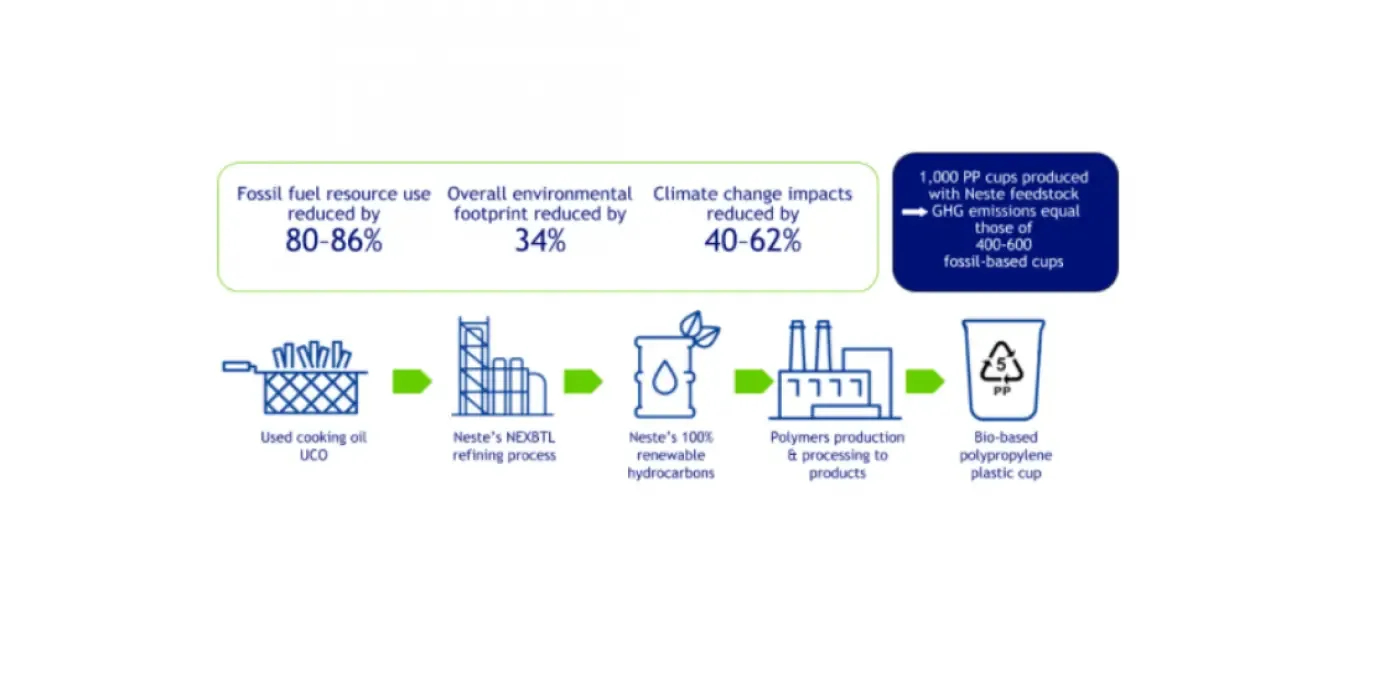
Sustainability
1 minute read
Utrecht study: renewable polypropylene cups with smaller footprint
Utrecht University conducted a study about renewable polypropylene (PP) as part of the European BIOSPRI study. In the study, fossil oil-based PP was switched to renewable PP produced from Neste’s renewable hydrocarbons.
This very first environmental life cycle analysis study of polypropylene (PP) from renewable feedstock examined environmental impacts resulting from replacing part of fossil feedstock in polymers production with Neste-produced 100% renewable hydrocarbons, produced from used cooking oil (UCO), and processing the polymers further into a plastic cup.

Researchers examined 16 environmental impact categories and confirmed environmental benefits in all categories. Particularly significant reductions were found in climate change impacts (40-62% reduction, variation resulting from changes in allocation methods) and fossil resources use (80-86%) when cradle to factory gate life cycle impacts of UCO-based PP were compared to those of conventional petrochemical PP. The overall environmental footprint of the UCO-based PP was reduced by 34%.
Although the results cannot be generalized to apply to renewable plastic feedstock or all plastic products, the study clearly indicates that replacing conventional plastics with renewable plastics produced from Neste RE consisting of 100% renewable feedstock enables plastics-consuming companies and brands not only to reduce their crude oil dependency but to produce climate-friendlier products and offerings.
The products produced with Neste RE are recyclable similarly to conventional plastic which enables the carbon in the material to be circulated instead of being released to the atmosphere.




